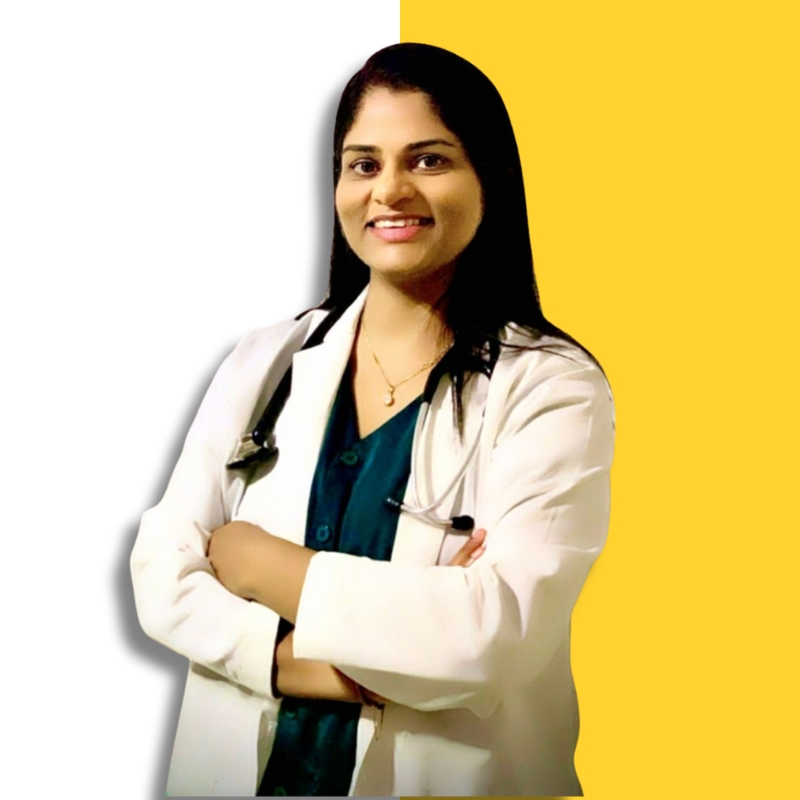Maintaining good gynecological health is a vital aspect of every woman’s overall well-being. However, many women ignore symptoms or delay visiting a gynecologist due to hesitation or lack of awareness.
Regular check-ups can prevent minor issues from becoming serious health concerns.
If you’re looking for compassionate and advanced gynecological care, Dr. Aprajita Srivastava, a trusted gynecologist in Noida can help.
With over 13 years of experience, including 7 years as a specialist, she has dedicated her career to women’s health and fertility care.

Why Regular Gynecologist Visits Are Important?
Routine gynecological visits are essential for women of all ages. These appointments help in:
- Detecting early signs of health issues like cervical cancer, ovarian cysts, and infections.
- Managing reproductive health, including family planning and pregnancy care.
- Addressing hormonal imbalances and menopause symptoms.
According to the American College of Obstetricians and Gynecologists (ACOG), women should have their first gynecological visit between the ages of 13 and 15, and regular annual exams thereafter.
Dr. Aprajita Srivastava, with her extensive expertise and compassionate approach, ensures that women receive personalized care tailored to their unique needs.
Common Signs That Indicate You Should Visit a Gynecologist
Here are the top signs you should not ignore:
1. Irregular Menstrual Cycles
If your periods are unpredictable, too frequent, or too far apart, it could indicate hormonal imbalances, polycystic ovary syndrome (PCOS), or other reproductive health issues. Find treatment for menstrual irregularities at Dr. Aprajita Srivastava’s clinic.
2. Unusual Vaginal Discharge or Odor
Changes in discharge or a foul smell might signal a yeast infection, bacterial vaginosis, or sexually transmitted infection (STI).
3. Pelvic or Abdominal Pain
Persistent pain in the lower abdomen could point to issues like endometriosis, pelvic inflammatory disease (PID), or ovarian cysts.
4. Heavy or Prolonged Bleeding
Bleeding that lasts longer than usual or is excessively heavy could indicate uterine fibroids, polyps, or other underlying conditions.
5. Pain During Intercourse
Discomfort or pain during sex might be caused by vaginal dryness, infections, or more serious issues like pelvic organ prolapse.
6. Breast Pain or Lumps
If you notice lumps, swelling, or persistent pain in your breasts, consult your gynecologist immediately for further evaluation.
7. Menopause Symptoms
Hot flashes, mood swings, and irregular periods are common during menopause. However, if these symptoms become severe, a gynecologist can help manage them.
8. Signs of Hormonal Imbalance
Acne, weight gain, excessive hair growth, or hair loss may indicate conditions like PCOS or thyroid disorders that require medical attention.
9. Symptoms of Infertility
If you’ve been trying to conceive for over a year without success, it’s time to seek expert advice. Dr. Aprajita Srivastava, an IVF specialist in Noida, can guide you through your fertility treatment options.
10. Postpartum Health Concerns
Post-delivery issues like persistent pain, heavy bleeding, or difficulty in breastfeeding warrant a gynecologist’s consultation.
Preventive Gynecological Care
Proactive care can save lives. Here’s what you should include in your regular health routine:
- Annual Exams: Regular pelvic exams and breast screenings can catch issues early.
- Pap Smears: Screening for cervical cancer is recommended every 3–5 years, depending on age and health history.
- STD Testing: Vital for sexually active women, especially if you have multiple partners.
Preventive care not only keeps you healthy but also gives you peace of mind.
Dr. Aprajita Srivastava provides comprehensive preventive care services at Qure Clinic, Sector 121, Noida.
Why Choose Dr. Aprajita Srivastava?

Dr. Aprajita’s impressive credentials include:
- Education: MBBS from Rajasthan University of Health Science, Jaipur, and DGO from RNT Medical College, Udaipur.
- Specialization: Fellowship in Minimal Access Gynecology Surgery & Reproductive Medicine from Max Healthcare in 2021.
- Expertise: Comprehensive care in gynecology, obstetrics, and infertility treatment, combining medical excellence with a compassionate approach.
Her extensive experience, coupled with advanced knowledge, ensures the best care for women at every stage of life.
FAQs
It’s recommended to visit a gynecologist at least once a year for a routine check-up. Additional visits may be necessary if you experience symptoms or are undergoing treatment.
Your first visit may include a conversation about your medical history, menstrual cycle, and any concerns. A physical exam might also be conducted.
Absolutely. Gynecologists can guide you on the best birth control methods based on your health and lifestyle.
Conclusion
Your health is your wealth, and paying attention to these signs can prevent complications down the road. Whether you’re experiencing unusual symptoms or simply want to stay proactive about your health, regular visits to a gynecologist are key.
Take the first step today! Book an appointment with Dr. Aprajita Srivastava at Qure Clinic, Sector 121, Noida, for expert gynecological and fertility care.
Your health deserves nothing less than the best.
Dr. Aprajita Srivastava is a highly experienced IVF Specialist in Noida, Gynecologist, and Obstetrician with over 13 years of expertise. Holding an MBBS, DGO, and a Fellowship in Minimal Access Gynaecology Surgery & Reproductive Medicine, she specializes in IVF, IUI, and advanced fertility treatments.
Practicing at Qure Clinic, Sector 121, Noida, Dr. Aprajita is dedicated to compassionate care, personalized solutions, and helping families achieve their dream of parenthood.
